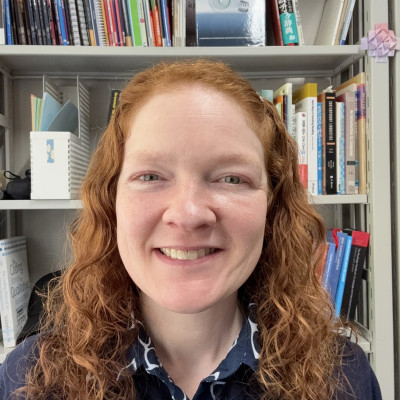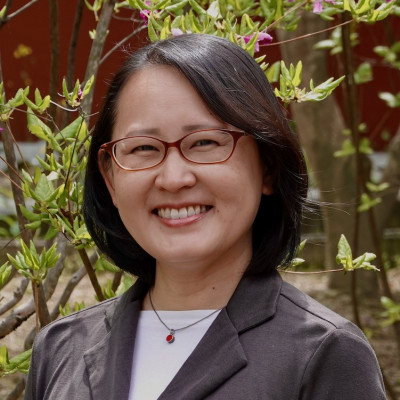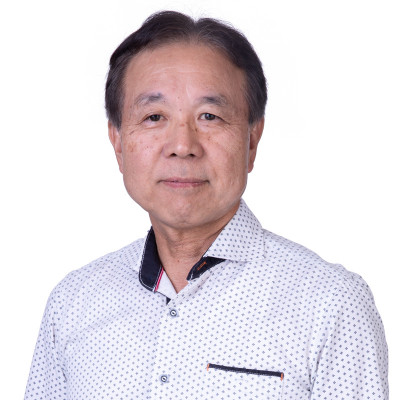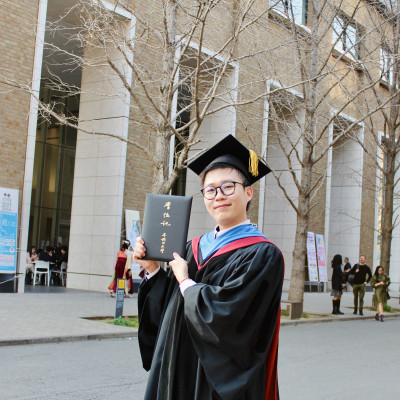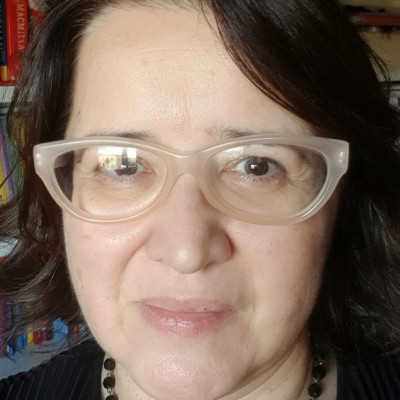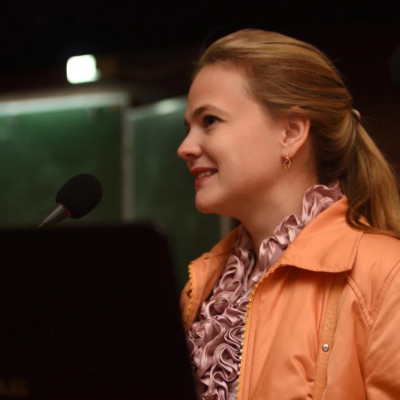Sessions / Location Name: Zoom C
Virtual Location
Virtual: You cannot enter virtually via this page. Click on the titles of individual presentations or go to the Live Page
New Ways to Teach Listening Online #2925
With classes now switching between online environments and face-to-face settings, teachers need a variety of activities that work in both situations. This presentation will show how to create interactive listening activities that can be used as paper and digital activities and can be used online or in class. Attendees will get a hands on approach on how to create their own activities and also access 100s of free audio materials online. Attendees can also learn how to adapt materials to fit their teaching needs. The presentation will focus on using Google Slides, Google Forms, and Microsoft PowerPoint for creating engaging listening tasks and puzzles that can work on a variety of listening skills. Teachers will also learn how to create task templates that make creating new activities easy and efficient. Some emphasis will also be given to creating listening activities for mobile devices. Finally, the presentation will give some insight to successful task design, and how to make tasks fun and intuitive.
Developing and piloting an application for measuring real-time learner engagement levels in foreign language classrooms. #3066
This presentation reports on the piloting of a smartphone application designed to measure learner engagement in the language classroom. Students report their engagement via this app throughout each lesson, while teachers view live analytics of the students’ social, affective, and cognitive engagement in real-time. We attempted to measure the engagement levels of 124 learners over 15 weeks of online synchronous lessons, while also gathering their perceptions and the experiences of the participating teachers. This presentation demonstrates how engagement measures such as this can be used to innovate classroom teaching and learning, while also highlighting limitations in the application. This work was supported by a JSPS KAKENHI Grant as part of a Japanese MEXT Grants-in-Aid for Scientific Research.
From asynchronous online to flipped learning: Design principles and implementation #3082
The COVID-19 pandemic has forced instructors to adapt courses to fully online delivery, including asynchronous formats. In their own asynchronous courses, the researchers aimed to move beyond emergency remote teaching in two ways. First, they endeavored to create video materials that could be reused in future incarnations of the courses as flipped learning. Second, they developed four design principles for video-based asynchronous content courses based on previous research (e.g., Guo, Kim, & Rubin, 2014) and learning theory (e.g., Brame, 2016; Krashen, 1987) to encourage student engagement and learning. These principles include recommendations for video length, instructor presence, content, and technical quality.
The presenters will first explain the principles for designing video-based asynchronous content courses and how they implemented them in two English-medium content courses for undergraduate students at a Japanese university. Next, they will discuss the conversion of the asynchronous courses to flipped learning. The conversion requires developing new content to be used in the face-to-face (or synchronous online) classroom. Finally, the presenters will share the preliminary results of an ongoing investigation into the effectiveness of the flipped course materials based on pre-semester and weekly student questionnaires. The presentation will conclude with a discussion of how the courses and the study can be improved in the future.
Collaborative Video Project on Japanese Culture and Zoom Presentation via Flipgrid #3079
The rapid development and increased availability of ICT tools have provided both learners and teachers with new insights and challenges into language learning and teaching. By using ICT tools in education, so many research results in Technology-Enhanced Language Learning (TELL) have shown that TELL is an effective approach that helps students and teachers to achieve certain educational goals while creating great opportunities for collaborative interaction, situated learning, and support for learning outside formal contexts. As a TELL practitioner, the presenter has actively used a variety of digital tools and free online resources for both EFL teaching and general education seminars in a hybrid style. In this presentation, I will discuss the pros and cons of individual (short-term) or small-group (semester-long) collaborative video projects. The project content engaged learners in thinking about Japanese culture, with a focus on snacks and/or drinks. Tools used included Zoom presentations, Flipgrid and Google Forms during the 2020-2021 academic years. I will share my experiences of implementing these tools in and beyond the classroom context. I will share data from post-project questionnaires and student work in the form of videos that were chosen from the final products in 2020-2021 classes. These videos will be used as examples of the positive and negative aspects of this video project. I will also clarify the reason why this project was largely unsuccessful and propose a possible solution for future implementation.
Unpacking Turkish EFL instructors' Challenges and coping Strategies for E- Assessment #3051
The recent pandemic has forced education to undergo a massive metamorphosis in terms of testing and assessment. The education to not be disbanded and disrupted, online platforms for ensuing it was regarded as the last resort. Instructors either online or face to face are bound to go with providing feedback and assessment. As with the pandemic around, a wide range of platforms were gaining popularity in language teachers. Currently, a good number of platforms are tasked with assessment issues. Putting instructors` teachers’ assessment literacy and their tech-savvy characters, language teachers are struggling with designing and administering the online assessment. Despite this need and the urgency of the matter, not more than a few studies have been conducted on online assessment challenges. In the place of addressing this need, the current qualitative research by examining 56 EFL instructors of Preparatory Language Schools tries to enrich the literature of the field. The study has tried to shed light on the challenge perception of instructors and the likely solutions in Turkish Preparatory Language Schools. In this regard, 56 instructors with MA and Ph.D. degrees have been selected to conduct the study. The data was collected by an open-ended questionnaire and resolute sampling and it got analysed by MAXQDA 2020. Cases like personal and characteristic differences, ethics, infrastructure, and policy power, mediating artefacts, teacher and student assessment and feedback literacy, and teacher and student technology literacy were the main challenges identified by applying online assessment. The findings obtained from the research can help better professional development practices, policy-making, and teacher training programs. Thanks to the study a sample and road map could e designed to have a better, proficient, and effective online assessment.
Training online EMI Higher education teachers on gamification techniques: the ins and outs #3059
Gamification in Higher education is an attractive strategy with great potential both for teachers and students (Flores Abreu, 2021). Recently, there has been an increase in research on this topic around the globe (Trinidad et al., 2021) and from different fields of study that also include second language learning (Santamaría & Alcalde, 2019). The possibilities of this methodology go beyond its application in the face-to-face environment, as research has demonstrated its potential also in online English learning scenarios (Santamaría & Alcalde, 2020). Although attractive and motivating for students, university teachers show slight scepticism to its use in their classrooms, mainly due to four drawbacks: loss of motivation, difficulty in classroom management, technological problems, and waste of time (Pektaş & Kepceoğlu, 2019). In English medium instruction (EMI) synchronous online lectures (SOLs), one of the main challenges teachers find is to keep students engaged during the sessions (Querol-Julián, 2021). The use of English as a lingua franca and the virtual setting are important constraints that influence learners’ participation in EMI SOLs (Querol-Julián, Forthcoming). This study supports gamification as one of these lecturers’ strategies to enhance students’ engagement during online lessons. We present the methodology employed in a Spanish online university to train lecturers on how to gamify their sessions successfully. This paper aims to show how, through a training period based on teachers coaching and mentoring (Santamaria-Urbieta & Querol-Julián, 2020), we can raise awareness and promote the use of gamification. We also present this training program’s preliminary results that show EMI online lecturers how to include gamifying elements for the first time in their sessions. Results show the evolution experienced by the teachers, the difficulties presented, and their needs. We focus on their lack of technological knowledge and preliminary uses of quizzes, escape rooms, and challenges, among others, and the difficulties encountered to promote language learning through content.
The GIGA School Program Year 1: Teacher and Student Perspectives Regarding the Implementation of One-to-One Devices in English Lessons #3081
The Global and Innovation Gateway for All (GIGA) School Program, an initiative by the Japanese government to provide each student in compulsory education with a computer, was implemented in March 2021. This case study used a mixed methods approach to examine teacher and student attitudes regarding the integration of one-to-one devices in the Year 8 English lessons of two Japanese public junior high schools. Teacher attitudes towards the technology, as well as their perceptions regarding its usefulness and ease of use, have been shown to affect the extent to which teachers utilize computers in their classes. Semi-structured interviews with two teachers were conducted prior to the implementation of the devices in English lessons to determine whether the participants held positive or negative attitudes towards the use of computers in the classroom. The two teachers were interviewed again after a semester to reflect on how successfully the technology had been implemented and its impact on the teachers’ pedagogical approaches. In order to determine the students’ attitude towards one-to-one devices in English lessons a Likert-scale questionnaire using an adapted version of Davis’ technology acceptance model was administered. The results indicated that whilst the teachers were initially concerned as to the insufficient training provided, this issue was overcome through self-instruction and trial and error. This successful integration of the technology was reflected in the students’ positive perceptions regarding the usefulness and efficacy of the one-to-one devices to study English. The experiences and pedagogical practices employed by the teachers are examined as a potential blueprint for English teachers who have been less willing to embrace the use of computers in their lessons.
The role of technology and technology training in language teachers' professional development in the private sector #3049
Although technology integration and its importance to teachers’ professional development in CALL have been studied in recent years, studies focusing on institutions in the private sector are still scarce. With the Vietnamese government advocating for the use of technology in language classrooms, especially in the private sector, it is necessary to study teachers’ perspectives toward technology integration and how technology training at the workplace contributes to their professional development in private institutions. Therefore, a case study was conducted in one private institution in Ho Chi Minh City, Vietnam using a mixed-methods approach to provide more insightful literature into this field. Data collected from four hours of classroom observations and two forty-five-minute sessions of semi-structured interviews of two teachers were coded and analyzed thematically. A questionnaire was later administered to 27 language teachers in the same institution to ascertain the final findings. Results indicate that even though the language teachers found the provided technologies challenging sometimes, they were optimistic and enthusiastic toward learning how to use them. Language teachers in this study also perceived their institution not only as a workplace but also as a community of practice where they learn about technology integration from their colleagues to advance their teaching profession. Data analysis has also uncovered the connection between CALL training/education and professional development on three levels, namely individual, peer, and institutional levels. Based on each level, the study provides suggestions for both public and private language institutions on improving technology training and enhancing the community of practice at the workplace. In particular, when it comes to technology education at the workplace, it is recommended that instead of introducing new technologies, institutions focus on the currently used ones to guarantee the success of technology integration and teachers’ professional development.
A gamified and game-based classroom for language teacher training #3044
This presentation aims to illustrate how effectively games and other ludic strategies were implemented and to what extent they fostered active learning and agency in an online graduate foreign language teacher training course, focusing on teaching Italian as a second language, offered at an Italian university. Since gamification is likely to increase learners’ motivation and autonomy (Jones, Blanton, and Williams 2022), pre-service language teachers engaged in various types of games, such as escape rooms and digital-based role plays, and ludic activities throughout their learning process. To foster equity, access, and inclusion in education, pre-service teachers experienced gamification (Zimmerman 2013) and game-based learning (Nesti 2017) fostered through the use of digital open educational resources (Rapanta et al. 2020; Van Allen and Katz 2020). The pre-service teachers also designed and implemented technology-enhanced ludic activities for university second language students studying abroad. Data for the study were collected through semi-structured questionnaires. Findings show that pre-service teachers (n=20) highly valued games and ludic activities enabling them to learn while having fun, which was a new experience for them. In particular, pre-service teachers highlighted engagement, motivation, and active learning as affordances of the learning experience. The findings from the study will be useful to instructors planning to design online, blended, and Hyflex language teacher training fostering gaming literacy.
References Jones M., Blanton J. E., Williams R. E. (2022). Science to practice: Does gamification enhance intrinsic motivation? Active Learning in Higher Education. https://doi.org/10.1177/14697874211066882 Nesti, R. (2017). Game-Based Learning. Gioco e progettazione ludica in educazione. Bologna: ETS. Rapanta C., Botturi L., Goodyear P., Guàrdia L., Koole M. (2020). Online University Teaching During and After the Covid-19 Crisis: Refocusing Teacher Presence and Learning Activity. Postdigital Science and Education, 2, 923–945. doi.org/10.1007/s42438-020-00155-y Van Allen L., Katz S. (2020). Teaching with OER during pandemics and beyond. Journal for Multicultural Education, 14(3/4), 209–218. doi.org/10.1108/JME-04-2020-0027 Zimmerman, E. (2013). Manifesto for a Ludic Century. https://shifter-magazine.com/wp-content/uploads/2015/09/ZImmerman-Manifesto-For-A-Ludic-Century.pdf
Incrementally Randomised vs. Non-Restricted Homework Tasks #3039
Even before the global pandemic, hybrid and online learning were becoming more routine worldwide. Recent events have only accelerated that trend. Normalization of CALL (Bax, 2003; Chambers & Bax, 2006) was even the focus of the 2012 conference. CALL affords various capabilities that a traditional, unenhanced classroom does not. Among the many possibilities, notable examples include unlimited drills, instantaneous feedback, personalized learning pathways, spaced repetition, electronic glosses, multimedia presentation, and speech to text analysis (Arnold & Ducate, 2019). One comparatively mundane and often overlooked capability is functionality that allows for easy regulation of assignment deadlines and submissions. Students are frequently told that regular, short increments of frequent practice are preferable to longer study sessions that occur less frequently (Skenes et al., 2020). Such learning patterns may be easy to follow in theory, but in practice, it can be difficult for learners to routinely settle in and focus for short increments of time and for teachers to monitor. Using the Moodle LMS, the presenters arranged online homework assignments that were automatically made available each fortnight for a two-week period before becoming inaccessible. One goal was to facilitate more regular completion of assignments as opposed to students completing assignments in a mad rush at the end. A second goal was to reduce cheating by necessitating incremental completion via regular deadlines and randomizing assignments. Initial results show that the time-restricted students engaged with tasks regularly throughout the semester while the majority of unrestricted students had higher engagement towards the very end of the semester. While both groups improved their scores, there were no significant differences between the groups. Presenters will discuss the results in further detail.
Encouraging out-of-class speaking practice with a 30-day challenge #3078
Whatever habit you'd like to incorporate into your life—exercise, healthy eating, mindfulness, meditation, etc.—you are likely to find a 30-day challenge for it. The concept of the 30-day challenge was inspired by the simple idea that a small addition to a person's daily routine can result in noticeable changes over the course of a month. A good 30-day challenge is inspiring, achievable, and likely to show positive results if completed earnestly. This presentation introduces a 30-day English speaking challenge offered to first-year Japanese university students as a way to help them build the habit of practicing speaking outside of class. The challenge consisted of 30 speaking tasks which the students completed by recording responses and submitting them via an online platform for language teaching and learning (ZenGengo). Participation in the challenge was voluntary, and no grades were given or points awarded. The only incentives offered to students were: 1) that a teacher would respond to their submissions with an audio recording, and 2) those who successfully completed all challenges would receive a certificate. Upon completion of each challenge, students were provided access to a model answer created with AI avatars and speech synthesis. The presenter will outline the benefits and challenges of conducting a 30-day challenge and explain the procedures used for delivering the tasks to students, collecting responses, and providing feedback. Insights obtained from surveys and student interviews will also be discussed. Those attending the presentation will be given access to the online platform for the purpose of offering the 30-day English speaking challenge to their own students.
Online Language Learning in Japan: Emulating Face-to-Face Environments #3074
The outbreak of the covid-19 has promoted a big digital shift approaches to language learning in tertiary settings. The recent rising trend of student-centered, more flexible and personalized learning experiences have also allowed instructors to reconsider effective online interactive language courses. While studies in Asian have demonstrated the high value of video conferencing tools in the improvement of communication skills in English (e.g., Ying, Siang, & Mohamad, 2021), research including students’ comprehensive feedback remains limited in Japan. In this poster presentation, the presenter will discuss ways in which teachers might emulate face-to-face environments in order to encourage students to fully engage in their online communicative activities. These suggestions are inspired by a study of the benefits and challenges of online interactive language learning completed by the presenter. Thirty-four Japanese undergraduate students enrolled in three English courses at a university in Japan participated in the study. The year-long courses were for students who had a lower-intermediate level of English proficiency and intended to develop their English verbal communication abilities. At the end of the courses, students’ feedback was collected and evaluated in combination with the instructors’ observations of their interactions and participation during class. The survey revealed increased enthusiasm toward online interactive activities even when compared to the in-class ones they had previously experienced. The activities students participated in included personal storytelling, collaborative verbal presentations, and discussion sessions utilizing a video conferencing tool and various online visual aids. The overwhelming majority of students in the study also demonstrated an increased propensity to apply online resources, such as YouTube, Instagram, Google Images and dictionaries, etc., toward the completion of their assigned tasks. The overall findings suggest that focus needs to be placed on developing innovative and captivating teaching approaches designed to meet different students’ motivations and learning preferences in online communicative language teaching environments.
A Role-Playing Game-Based English For Academic Purposes Course Design #3061
The speaker will share about the initial creation of the concept and design for a game-based English for Academic Purposes (EAP) course at New York University Shanghai (NYUSH). EAP at NYUSH is required for all Chinese freshmen and is a content-based approach to teaching academic listening and speaking skills. EAP 100 focuses primarily on lecture note-taking skills and academic presentation skills. In the Fall of 2021, the presenter piloted the first rendition of her gaming content-based course that focused on analyzing both analog and digital games for social issues such as racism, sexism, LGBTQIA+ discrimination, religious discrimination, economic exploitation, environmental degradation, and war, politics, and propaganda. Not only was the content of the course related to games, the course design itself was set-up to mimic a role-playing game (RPG) in which the students were led to complete quests and defeat bosses to pass the course. In addition, the speaker will address how local gaming laws affected course implementation and future modifications she wishes to make to the RPG course design.
Student Misappropriation of Technology in Self-Access Language Learning: A Symptom of Liquid Modernity? #3063
Since the onset of Covid-19, most self-access learning centres (SALCs) at Japanese universities have moved their language learning programmes online. However, in the rush to ensure programme continuity, the switch has put more pressure on students to be visibly and accountably “more active and direct more of their own learning experiences” (Boettcher & Conrad, 2016, pp.8-9). This, in turn, appears to have inadvertently encouraged some Japanese university students, regardless of English proficiency level, to see the use of online technology for self-access language learning as a distractive rather than disruptive means to learning English. Consequently, instead of applying their language skills via the technology provided, a trend has developed in which students are actively seeking out and making ludic use of machine translation services such as DeepL Translator to quickly and simply complete self-access tasks to gain subsequent ‘points’ (credit) for SALC required use. Such troubling game-like, technological practices appear symptomatic of what Bauman (2000, 2012) describes as liquid modernity–i.e. where superficiality, information-avoidance behaviour and reduced decision quality have come to override contemplation of the most useful and desirable skills and practices for learning. To this end, this presentation will first examine Bauman’s (2000, 2012) concept of liquid modernity as it applies to student misappropriation of technology in self-access language learning. Thereafter, observation data from a case-study will be presented on the problematic growth of this student practice at one Japanese university’s SALC before concluding with a discussion on how staff at the latter are addressing the issue.
Offline or online, language games play just fine! Edutainment case in a multidisciplinary setting. #2918
Edutainment has recently become a leading tendency in language teaching as it encourages the learners to practice various skills in a game-like setting. Here we showcase the edutainment activity designed for Master students of a technical university (2018-22) and its online ‘spin-off’ (2020-2021). Once tailored for the learner’s needs, an edutainment practice helps reach the desired learning outcomes when used both as a language booster at the beginning of the term and as the culmination of an advanced language course.
In out talk we will discuss scenarios that can involve participants in a high-tech interactive game to improve language fluency, enhance academic vocabulary, and revise relevant grammar.
The edutainment event was initially designed for Master students of Skolkovo Institute of Science and Technology and was successfully run offline for several years. The scenario was inspired by space travel where the representatives of various technical programs collaborated and competed while ‘exploring’ the exoplanets. All challenges required both individual and team input for brainstorming, discussion, negotiation, project design and presentation. Cutting-edge authentic scientific content was packaged into engaging tasks with a strong language component. Game trajectory was affected by real physical artefacts introduced at the turning points of the plot. Two-phase scoring system included game currency and points for successful task completion. The winning team received valuable prizes from the institute.
During the pandemic, the edutainment approach was tested in the online mode at Moscow State University (MSU) with a group of ten medical and biology students. This time, the plot was based on the Marburg virus outbreak. The goal was to save the town by solving the mystery of a zero patient through linguistic challenges.
Our edutainment practices transform the English class into a creative and engaging communicative event leaving no room for boredom or stress.




